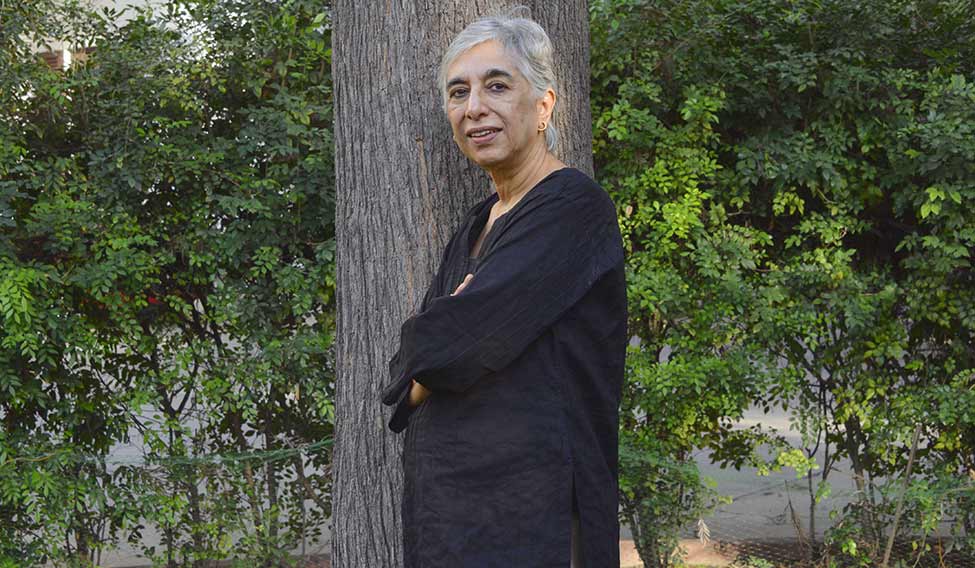Parakeets fly screeching across the evening sky drowning out conversation. The house looms large—red sandstone, endless corridors and green shutters draped with layers of history—right across from the only political address that mattered for years, the Congress party office. Manju Kapur, chronicler of middle-class India, sits in one of the rooms, filled with books, scribbling each day a story of everyday ordinariness. “I dislike not being able to write,’’ she says, as she settles down in a chair. “So, I try and make a routine of it.” Her new book, Brothers, is out. Like everything else Kapur has written, this one, too, took years to complete. And, for this one, too, she goes back to the family. “In Brothers, I thought what would make a brother kill a brother,’’ she says.
The book is about Himmat Gaina and his younger brother, Mangal. Himmat is a charismatic and successful politician. Mangal grows up in the shadow of his brother, whom he idolises. He even marries the woman his brother chooses for him. At the beginning of the book, Mangal has shot Himmat, who lies in the ICU, because he believes his wife, Tapti, is having an affair with him. The story uncannily echoes the Pramod Mahajan saga. Ask Kapur if she was inspired by the event and she laughs. “Things that happen around you are triggers,’’ she says. “Pramod Mahajan was an extreme case. I did not want the story to echo that in any way. I did not set the story in Maharashtra. I set it in Rajasthan. I didn’t try and find out about that family. I did my own research. I put them in a village.”
Quiet and gentle, Kapur’s books explore the larger-than-life Indian family, often through the eyes of women. It is their world—complicated, nuanced and difficult—that she brings alive to perfection. Capturing the mundaneness of ordinary life isn’t easy. No other writer brings out the inner working of the Indian middle-class family—the tension, duty, obligations as well as rivalry and love—the way Kapur does. Her books are meant to be read slowly, savoured and re-read years later. “I would like my books to last,’’ she says. “If I feel it is dead, it doesn’t carry conviction, or you don’t empathise with the person, that is a really big sin. Or you don’t care what is happening to this person. At that point, I will backtrack and rewrite those strands, filling in more and more till I feel that it is working.’’
An English professor, Kapur spent years “dealing with second-hand stuff”. Till she finally started to write. “I guess I wanted to do my own,” she says. “I think age had to do a lot with it. I was in my 40s. What would I be when I die? You kind of want to be more substantial.”
By the time her first book, Difficult Daughters, got published, she was almost 50. The book set her firmly on the map of the first flush of Indian writers. “Even then, I felt maybe it was a fluke, so also with my second one. I started to call myself a writer after my third book,’’ she says. “Writing has always been very hard. Always. I thought it would get easier, but it hasn’t.”
Poetry came first, then came plays. “What do you do with a play?’’ she asks, laughing. Hers are still there somewhere stacked away. “After four years of doing this kind of stuff, novels seemed to be the way to go,’’ she says. So, does she have any favourites? “I like A Married Woman. I feel that it has done badly because it is the ‘runt of the litter’ kind of thing.”
Unlike other writers, Kapur is not on Twitter or Facebook. She isn’t a recluse, but she values her privacy and guards it fiercely. “I have nothing to say that I haven’t said in my books,’’ says Kapur. So, is she working on a new book? “I am always working on a new novel,’’ she laughs. “It goes with the turf.”







